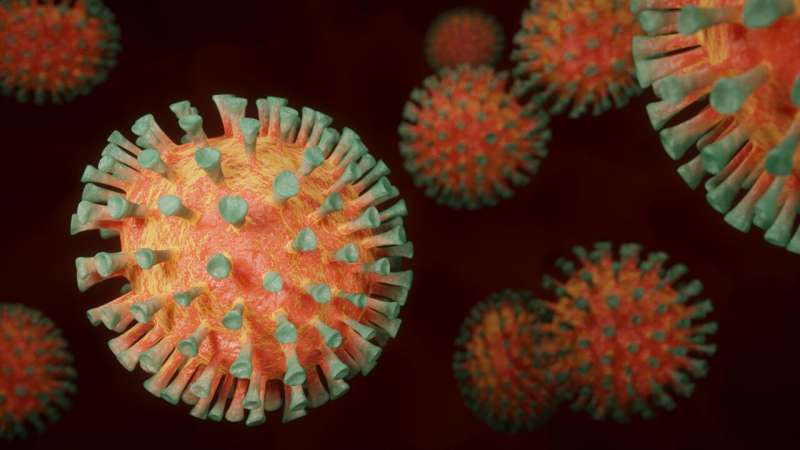

New research presented at The Physiological Society’s conference Long COVID: Mechanisms, Risk Factors, and Recovery held February 22–23 shows that a small handheld breathing device helped reduced breathlessness and improved physical fitness of people with long COVID. The low cost, home-based rehabilitation program increased the strength of respiratory muscles, speeding up the rate of recovery from COVID-19.
Approximately 1 in 10 people recovering from COVID-19 experience long COVID (reports on this figure still vary), which negatively impacts quality of life. Many people with long COVID feel breathless, tired and can have difficulties performing basic tasks of daily living.
The new intervention improved respiratory health and fitness levels of people with long COVID by training the muscles used to breath, which can be strengthened just like other muscles in the body. Participants felt less breathless, stronger, fitter, and could move around more easily, similar to pre-COVID levels.
The study involved 148 participants. They were recruited through social media and included a few discharged hospital patients. They were randomized into intervention and control groups.
Participants were provided with their own small handheld device to do breathing exercises for about 20 minutes three times a week over eight weeks. They would breathe into the device as deeply as they could for as long as they could. The device would then provide feedback to the user. The results were compared with participants in a control group who had no intervention.
Breathlessness was reduced by 33%, twice the level considered clinically meaningful, in the intervention group compared with the control group. Estimated fitness increased by approximately 10% and respiratory strength increased by approximately 36% in the intervention group compared to control group. The health improvements were 2 to 14 times greater for the intervention group compared to the control group.
The intervention was developed by a UK-wide team of breathing experts, who have worked with people with many types of respiratory conditions such as chronic obstructive pulmonary disease, asthma and cystic fibrosis. The clinical benefits suggest the program should be considered for wider implementation as part of COVID-19 recovery strategies.
One-to-one interviews were carried out to evaluate participants’ experiences of COVID, recovery from it and the impact of the inspiratory muscle training. Researchers assessed breathlessness, quality of life, the strength of the respiratory muscles and estimated aerobic fitness.
The study was conducted during various phases of UK-wide COVID-19 restrictions and lockdowns. Conducting it entirely remotely via online video conferencing limited the robustness of the measures the research team could use.
Source: Read Full Article